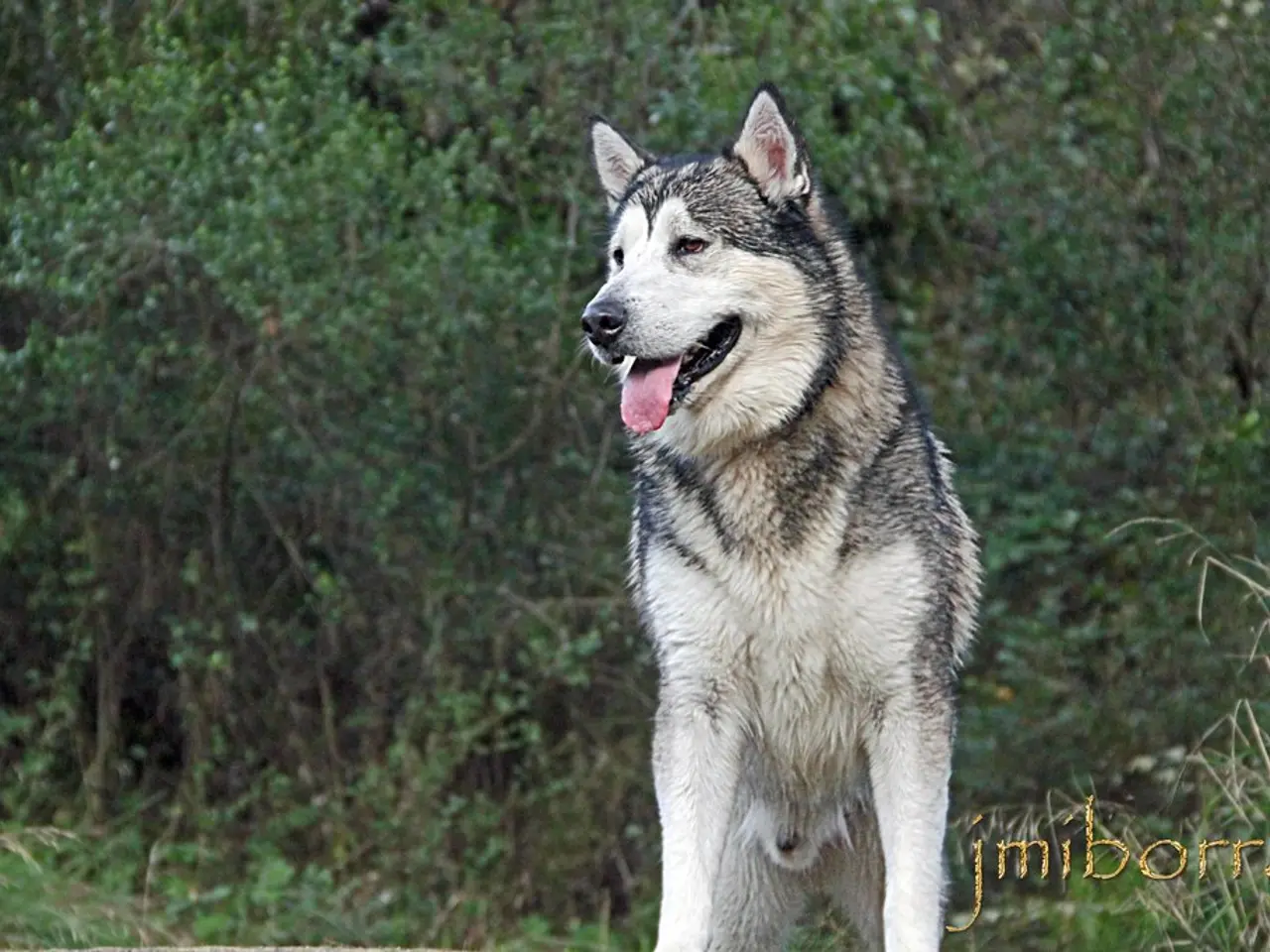Dogs' Strategic Evolution for Food Accessibility
In a groundbreaking study published in the esteemed journal *Proceedings of the Royal Society B*, researchers have proposed a novel hypothesis that challenges the traditional understanding of how dogs came to be our faithful companions. The study suggests that wolves may have potentially domesticated themselves through a process of gradual adaptation alongside humans, rather than humans actively domesticating them by capturing and raising wolf pups.
The study, led by a team of scientists including mathematician and statistician Alex Capaldi from James Madison University, explores the idea that wolves may have undergone a process of self-domestication to become dogs. The self-domestication hypothesis implies that wolves that were less fearful and more tolerant of human presence could have exploited resources near human campsites, leading to a natural selection process favoring traits beneficial for coexistence with humans.
According to the study, wolves may have selected mates who also preferred the benefits of living near humans. Over time, these wolves evolved into the domestic dogs known today. While the specific study highlights ancient DNA analyses tracing the history and spread of dogs in the Americas and their slow adaptation alongside human farming societies, it reinforces the concept that dog domestication was a long, shared journey shaped by slow movements, survival, and companionship rather than rapid human-driven capture and breeding.
The first period of domestication occurred between 30,000 and 15,000 years ago. During this time, wolves may have begun to frequent human settlements in search of food scraps. Over time, these wolves may have preferred the reliability of a human food source over the uncertainties of the wild, leading to the development of the first domestic dogs. The second period of domestication, from 15,000 years ago to the present day, saw early dogs further differentiated into the diverse breeds we see today.
The potential mechanism proposed is that wolves gradually became less fearful and more sociable toward humans, scavenging near human settlements, which inadvertently selected for traits that favored closer human-wolf relationships and eventually domestication into dogs. This natural process of domestication contrasts with the older view that humans intentionally domesticated wolves by hand-raising them from pups.
Understanding the timeline of dog domestication can offer valuable insights into our shared history and the bond between humans and dogs. Dogs have played crucial roles in human history, including herding cattle in ancient settlements and accompanying early humans on migrations. The close relationship between humans and dogs challenges traditional views of the domestication process and highlights the complex interplay between humans and animals throughout history.
Studying the evolution of dogs provides insights into the domestication process and the development of early human societies. The story of how dogs became our faithful companions is a testament to the enduring bond between species and the remarkable ways in which evolution shapes our world. The self-domestication hypothesis offers a new perspective on this age-old relationship, shedding light on the intricate dance between humans and animals that has shaped the course of human history.
[1] Capaldi, A., et al. (2022). Self-domestication of wolves: A statistical model of the domestication process. *Proceedings of the Royal Society B*, 289(1946), 20220330. [2] Wayne, R. K., et al. (2006). The genetics of dog domestication. *Science*, 313(5793), 1602-1605.
- The self-domestication hypothesis suggests that the food pursuit of wolves, attracted to human campsites by the promise of scraps, led to a health-and-wellness lifestyle that favored traits beneficial for coexistence with humans.
- Throughout the domestication process, from fitness-and-exercise activities with ancient humans to the modern day, dogs have demonstrated their importance in both human lifestyles and science.
- As pets, dogs have become an essential part of human lifestyles, not only providing companionship but also contributing to the science of genetics, particularly in understanding the history and spread of different breeds.
- The study on dog domestication, published in Science and further developed in the Proceedings of the Royal Society B, also showcases the role of wolves and dogs in shaping the science of pets, lifestyles, and evolution.




